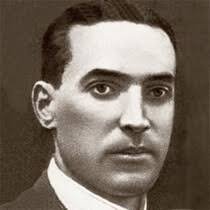Importance of Constructivist Theories in School Management

Source
When you know the different Learning Theories, you can be sure that it is always possible to learn, because we are capable of acquiring new knowledge every day. The different theories of learning allow students to learn, express themselves, prepare and finally progress proactively as people. In this order of ideas, the Constructivist Theory supports the student's capacity as a constructor of their learning, since it is a process that occurs satisfactorily when he can through it relate previous knowledge with the knowledge that is acquiring.
Now, constructivism represents a vital contribution in the teaching process, since it takes an interdisciplinary perspective, because it is based on a diversity of psychological, educational, sociological, philosophical and critical theories that reconstruct teaching. It should be noted that reading comprehension and mathematical logic are considered as constructive activities, to the extent that it uses the meanings contained in them and the interpretations. According to constructivism, learning is the result of individual mental construction, through which the student learns by force of new games, according to the information given and makes meaningful connections.
The Theory of Social Constructivism by Lev Vygotsky (1978), conceives human development as a process of socialization, where language and interaction play a fundamental role. In addition, he points out that learning is a function of development, communication and gives great importance to guided learning. This theorist, Vygotsky, thus concentrated his effort on language as a means to develop his model of mediation more quickly but at no time ceased to be interested in the other means or technologies of the intellect, currently investigated by authors who deal with these new psychological instruments of representation, such as the audiovisual or the computer.

Another very important Constructivist theory in school management today is the Significant Learning of Ausubel, D (1976), which states that in meaningful learning the new information is incorporated in a coherent manner, to the knowledge structure of the learner. He also states that this learning is the human mechanism par excellence to acquire and store the immense amount of ideas and information represented in any field of knowledge.
Ausubel quoted by Rondón (1995) states:
Make meaningful learning if the learning task
can be related, in a non-arbitrary and substantial
way (not literally), with what the student already
knows and if the latter adopts the corresponding
learning attitude to do so. (p.17)

In this sense, the application of strategies and resources for learning are crucial activities for meaningful learning, because it involves the development of superior cognitive abilities such as reflection, critical thinking, analytical thinking, argumentation, among other skills in students. . It should be noted that applying strategies enriches the learning processes, because thanks to them, students achieve a new meaningful knowledge.
If all classroom teachers use these two Construtivist theories, students will achieve meaningful and constructive learning, since generating open and flexible learning strategies allows a change in school management, we must consider strategies as hypotheses of action, for examine them and check their efficiency in order to maintain, modify or replace them, because the role of the classroom teacher is very important in the educational process and only by training and innovating could we achieve that change in education.